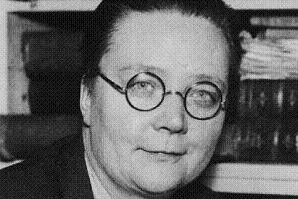Spirits in Bondage - A Review
C. S. Lewis is known in most contemporary circles for his apologetics and for his children’s books. If you were to do a “person on the street” interview about Lewis in a local church, you would probably find people mentioning his Chronicles of Narnia, Mere Christianity, and perhaps the collection of essays titled, God in the Dock. There might be some who know about The Screwtape Letters or, if they have a philosophical bent, The Abolition of Man, or, perhaps, The Great Divorce.
Not only would you find people ignorant of any of the works that focused on Lewis’ primary vocation as a scholar of Medieval and Renaissance literature (one of which is still a text in use), but you would be hard pressed to find someone who has not fallen deep into the well of Lewis studies that would describe Lewis as a poet.
And yet, the first volume Lewis ever published was of poetry, and he published many along the way. In an informal exchange, senior Lewis expert James Como (who contributed an essay to the volume, The Christian Mind of C. S. Lewis) informed me that Lewis may have executed his mythopoeic power more effectively in his poetry than in his narrative writing. Based on some of his later poetry, particularly poems like “As the Ruin Falls,” there is an argument to be made there.
Lexham Press has recently released Lewis’ first published volume, which is a cycle of poetry. Spirits in Bondage: A Cycle of Lyrics was begun during his teenage years (as we know from his correspondence with Arthur Greeves) and completed while Lewis was in the trenches during the Great War and during his recovery after he was wounded. It bears the marks of a broadly read teenager. Engaging, imitative, emotionally powerful at times, and at other times not quite enrapturing.
This small book, originally published under the pseudonym Clive Hamilton, earned a lukewarm reception from reviewers, which contributed to Lewis becoming more invested in other forms of literature. Part of the reason for its meager applause when released was that Lewis largely borrows from existing forms of poetry and, at the beginning of the Twentieth Century, English poetry was trending toward more modernistic form and structure. Lewis’ tendency to imitate the art of others, borrowing their themes and structures to present ideas in a fresh way, did not catch the fancy of readers of poetry as it would in his highly imitative science fiction trilogy or with the Chestertonian moralism of much of his apologetic prose. In many ways we should be thankful, because Lewis the novelist and apologist has been more effective than Lewis the poet may have been.
The new edition of Spirits in Bondage is a well-constructed book. The slender hardback volume is artistically illuminated, with brilliantly colored endsheets. It is well-typeset to invite the reader into a meditative digestion of Lewis’ poetry. This is a lovely volume and a pleasure to experience.
The reprint book has been published with a new introduction by Karen Swallow Prior. Her brief essay helps welcome unfamiliar readers into this book. She reminds people that this “is a work of literary, intellectual, and spiritual immaturity––and promise.” And it is all of those things. The reader of Mere Christianity would be surprised to pick up this book and find a tendency toward supernaturalism, but no real sense of the grandeur of the Divine. Prior’s introduction does what all introductions should do: it puts the work into its context so the uninitiated reader need not puzzle over themes and concepts that seem foreign. It also sets expectations, as Prior notes, “While sometimes weak in both concept and execution, the poems overall exhibit considerable metrical variety and a range of perspectives impressive for such a young writer. They are worthy reading for the poetry lover and the Lewis aficionado alike.”
Readers should understand that Spirits in Bondage is being reprinted because of the man who wrote it, not because it is the best poetry of its age. But for those struggling to understand the complexity of Lewis (there is a great deal more to even his children’s stories than some will acknowledge), these poems are exceedingly helpful.
When Lewis wrote Spirits in Bondage he was not a theist. He was past the most strident phase of his atheism, which was fueled by his tutor. He had found joy in the transcendent beauty of Nordic mythology. He had dabbled in the occult in his late teens, and that supernaturalism can be seen beneath some of Spirits in Bondage. This is, to be clear, not a series of love poems to the God of Abraham, Isaac, and Jacob. But it is not directly antagonistic to the faith, however. We encounter a Lewis who has not been found by Christ, but is searching for something he knows is out there.
This book will have the most appeal for those studying the life and work of C. S. Lewis. But those that enjoy poetry will find it a generally pleasant experience, too. Those who both enjoy poetry and are deeply interested in Lewis will find this a thoroughly intriguing book, because there are echoes of later Lewisian thoughts and motifs even in this very early work.
NOTE: I received a gratis copy of this volume from the publisher with no expectation of a positive review.



























Reading your Bible is a battle. There’s a reason why Paul lists Scripture as the sword of the Spirit in his discussion of the armor of God (Eph. 6:17). More even than that, Scripture reveals God’s character and is, thus, central to worshiping well (Psalm 119). That’s why reading the Bible is a battle.